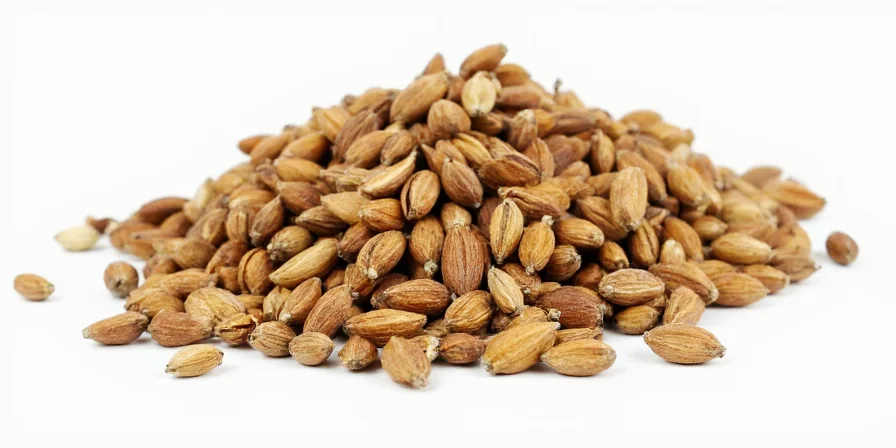Unraveling the Mystique of Cardamom Seeds
Cardamom seeds, often referred to as the 'Queen of Spices', hold a prominent place in the culinary and medicinal realms. With their unique flavor profile and numerous health benefits, these tiny seeds pack a powerful punch. In this blog, we will explore the origins, uses, and benefits of cardamom seeds, diving deep into what makes this spice so extraordinary.
What are Cardamom Seeds?
Cardamom seeds are derived from the pods of plants belonging to the Elettaria and Amomum genera, which are part of the ginger family, Zingiberaceae. They are widely used in cooking, baking, and traditional medicine, particularly in South Asian and Middle Eastern cuisines.
Types of Cardamom
- Green Cardamom: The most common variety, known for its sweet, floral flavor.
- Black Cardamom: Has a smoky, earthy flavor and is often used in savory dishes.
- White Cardamom: A bleached version of green cardamom, often used in sweets.
Historical Significance
Cardamom has a rich history that dates back thousands of years. It is believed to have originated in the rainforests of India and was used in ancient Ayurvedic medicine. The spice was so highly valued that it was often traded like gold, and it found its way into the kitchens and apothecaries of ancient Egypt, Greece, and Rome.
Cultural Uses
| Region | Use |
|---|---|
| India | Used in chai and various curries. |
| Middle East | Incorporated in coffee and sweets. |
| Scandinavia | Flavoring in baked goods. |
Flavor Profile
The flavor of cardamom seeds is complex and multi-dimensional. They possess a sweet, spicy taste with hints of citrus and mint. When crushed, they release a fragrant aroma that elevates both sweet and savory dishes. Here’s a closer look at their flavor characteristics:
- Sweetness: Naturally sweet, making them perfect for desserts.
- Spiciness: Adds warmth to savory dishes.
- Freshness: The minty undertone brings a refreshing quality.

Culinary Uses of Cardamom Seeds
Cardamom is incredibly versatile in the kitchen. Here are some of its most popular culinary applications:
Baking
Cardamom seeds are a favorite in baking, particularly in Scandinavian countries. They are often used in:
- Breads
- Cakes
- Buns
Cooking
In savory dishes, cardamom is commonly used in:
- Curries
- Rice dishes
- Stews
Drinks
Cardamom is a key ingredient in:
- Masala chai
- Middle Eastern coffee
- Spiced cocktails
Health Benefits of Cardamom Seeds
Cardamom is not just a flavor enhancer; it also boasts a plethora of health benefits:
Digestive Health
Cardamom has been traditionally used to aid digestion. It helps in:
- Reducing bloating
- Relieving gas
- Soothing stomach cramps
Antioxidant Properties
Rich in antioxidants, cardamom helps in fighting free radicals in the body, promoting overall health.
Anti-Inflammatory Effects
Studies suggest that cardamom can reduce inflammation, making it beneficial for those with chronic inflammatory conditions.
Respiratory Health
The spice has been known to aid in respiratory issues, thanks to its ability to clear mucus and relieve congestion.
How to Use Cardamom Seeds
Using cardamom seeds in your cooking is simple. Here are some tips:
Whole vs. Ground
You can use cardamom seeds in both whole and ground forms. Whole seeds are often added to dishes early in the cooking process, while ground cardamom is usually added towards the end to retain its flavor.
Storing Cardamom
To preserve the potency of cardamom, store it in a cool, dark place in an airtight container. Whole pods can last for several years, while ground cardamom should be used within six months for optimal flavor.
Recipes Featuring Cardamom Seeds
Here are a couple of recipes to get you started with cardamom seeds:
Cardamom-Spiced Rice
Ingredients:
- 1 cup basmati rice
- 2 cups water
- 5 green cardamom pods
- 1 bay leaf
- Salt to taste
Instructions:
1. Rinse the rice under cold water until the water runs clear.
2. In a pot, bring water to a boil and add cardamom pods, bay leaf, and salt.
3. Add the rice, stir, and reduce heat to low. Cover and cook for 15-20 minutes.
4. Fluff with a fork and serve.Cardamom Chai
Ingredients:
- 2 cups water
- 1 cup milk
- 2 teaspoons black tea
- 3 green cardamom pods, crushed
- Sugar to taste
Instructions:
1. In a pot, boil water and add crushed cardamom and tea leaves.
2. Simmer for 5 minutes.
3. Add milk and sugar, bring to a boil, then strain and serve hot.Conclusion
Cardamom seeds are not just a beautiful spice but are also a treasure trove of health benefits and culinary delights. Whether you are looking to enhance your dishes or improve your wellbeing, incorporating cardamom into your daily routine can be incredibly rewarding. So why not explore the world of cardamom seeds and discover the magic they can bring to your kitchen?










 浙公网安备
33010002000092号
浙公网安备
33010002000092号 浙B2-20120091-4
浙B2-20120091-4